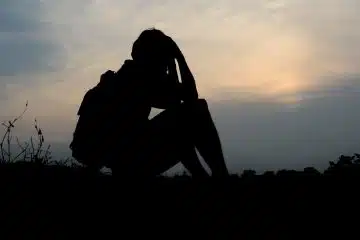7 things to know about the Dobbs abortion case now before the Supreme Court
by Katie Yoder
Washington, D.C. Newsroom, Nov 30, 2021 / 02:00 am
Part of a continuing series examining the U.S. Supreme Court case Dobbs v. Jackson Women’s Health Organization, a direct challenge to the 1973 decision in Roe v. Wade that legalized abortion throughout the United States.
The U.S. Supreme Court is hearing a historic case on Dec. 1 that directly challenges Roe v. Wade, the 1973 ruling that legalized abortion nationwide. Here’s what you need to know:
1. What is the case about?
The case, known as Dobbs v. Jackson Women’s Health Organization, involves a 2018 Mississippi law restricting most abortions after 15 weeks. “Dobbs” stands for Thomas E. Dobbs, who serves as the state health officer of the Mississippi State Department of Health. Jackson Women’s Health Organization provides abortion in Jackson, Mississippi, and is the only abortion clinic in that state.
The case centers on the question of “Whether all pre-viability prohibitions on elective abortions are unconstitutional,” or whether states can ban abortion before a fetus can survive outside the womb. The case challenges two landmark abortion cases that Mississippi calls “egregiously wrong”: Roe v. Wade and Planned Parenthood v. Casey.
2. Why does the case challenge Roe and Casey?
In Roe v. Wade, the court ruled that states could not ban abortion before viability, which the court determined to be 24 to 28 weeks into pregnancy. Nearly 20 years later, the court upheld Roe in Planned Parenthood v. Casey. The 1992 ruling said that while states could regulate pre-viability abortions, they could not enforce an “undue burden,” defined by the court as “a substantial obstacle in the path of a woman seeking an abortion of a nonviable fetus.”
Mississippi’s Gestational Age Act, the subject of the Dobbs case, bans abortion weeks before the point of viability.
“Under the Constitution, may a State prohibit elective abortions before viability? Yes,” Mississippi argues in its brief. “Why? Because nothing in constitutional text, structure, history, or tradition supports a right to abortion.”
3. What time are the arguments?
The oral arguments are scheduled to begin at 10 a.m. on Wednesday, Dec. 1, and will last for 70 minutes.
4. Who will argue the case before the court?
Three people will speak before the justices. Scott G. Stewart, the solicitor general of Mississippi, will have 35 minutes to represent the state. For Jackson Women’s Health Organization, Julie Rikelman, litigation director of the Center for Reproductive Rights, will have 20 minutes. U.S. Solicitor General Elizabeth B. Prelogar will also have 15 minutes to argue in support of Jackson Women’s Health Organization.
5. How can Americans hear or read the arguments?
The Supreme Court building in Washington, D.C. is temporarily closed to the public due to COVID-19, but Americans can still listen in. The high court provides an audio livestream of all oral arguments on its website. Following the event, its website also offers an audio recording and same-day transcript of the arguments. C-SPAN also livestreams the audio of Supreme Court arguments on its website and on its YouTube channel. CNA will provide updates on the arguments as they occur.
6. Who will be outside the Supreme Court during the arguments?
In support of abortion, the Women’s March will march to the Supreme Court at 2:15 p.m. The Center for Reproductive Rights and the National Abortion Access Coalition will gather outside at 7:30 a.m. NARAL Pro-Choice America will arrive at the same time.
A pro-life rally called “Empower Women Promote Life” will begin at 8 a.m. outside of the Supreme Court. Mississippi Attorney General Lynn Fitch recently released the speaker list, which includes a slew of pro-life women of diverse backgrounds and numerous politicians.
7. What happens after the oral arguments are completed?
What happens next is that America waits. Nothing will be decided on Dec. 1. The Supreme Court generally releases decisions in high-profile cases, such as this one, in June. So there will be plenty of time between now and then to parse the questions that the various justices will pose during the oral arguments, looking for hints of how this or that justice might vote.
Whatever the court ultimately decides, the consequences for the country will be enormous.
If Roe and Casey are overturned, abortion law would be left up to each individual state. The Guttmacher Institute, a reproductive research organization once associated with Planned Parenthood, predicts that 26 states would certainly or likely ban abortion.
If the Mississippi law is struck down, and Roe and Casey are affirmed, it would be a devastating setback for the pro-life movement, which has pinned its long-term legal strategy on someday having a conservative supermajority on the Supreme Court, as is the case today.













